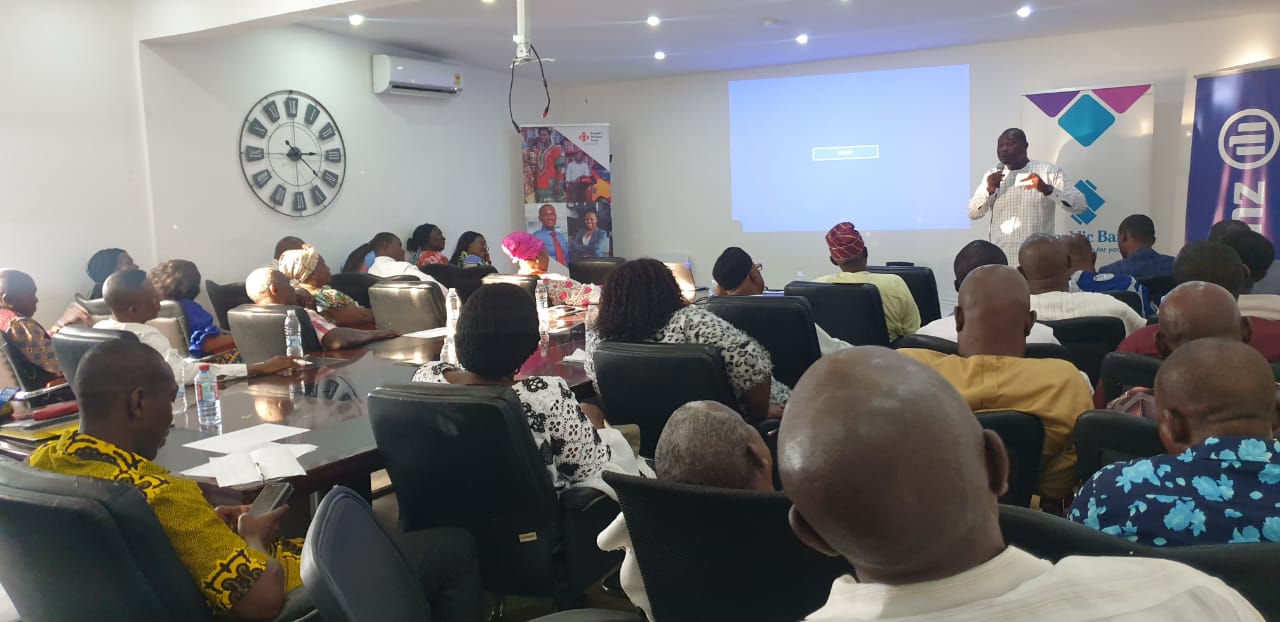
The Council of indigenous Business Associations (CIBA) was established by a Legislative Instrument, PNDC Law 312 of 1993 to act as a focal point and a unified voice for the informal business sector in Ghana. The Council’s objective is to oversee the affairs of all indigenous registered business associations in Ghana.

(1) There is hereby established a body to be known as the Council of Indigenous Business Associations.
(2) The governing body of the Council is a Board consisting of
(3) The chairman of the Board shall be elected by the members of the Board from among their number.
(4) The chairman and other members shall hold office for a period of four years and are eligible for re-appointment.
(5) The Board shall meet annually to consider...
(6) The quorum for a meeting of the Board is one-third of the members.
The functions of the Council are
(a) to register applicants under this Act;
(b) to monitor the operations of the registered associations with a view to recommending improvements;
(c) to foster harmony and understanding among member associations;
(d) to provide information and advice on matters relating to the interests of member associations at the request of those associations;
(e) to act as the representative of member associations in negotiations with the Government.
(1) The associations specified in the Schedule shall be registered with the Council.
(2) There shall be registered with the Council any other associations of Ghanaian indigenous business that the Minister may approve.
(3) An application for registration shall be made in the form that the Council may after consultation with the Minister direct.
(4) The Council shall on the registration of an association issue it with a certificate of registration.
(5) The prescribed fee shall be paid in respect of each registration
(1) The Council shall have an executive committee composed of...
(2) A member of the executive committee shall on ceasing to be a member of the Board, cease to be a member of the executive committee.
(3) The executive committee shall meet at least once in every two months at the times and places determined by the chairman.
(4) The executive committee shall, in between meetings of the Board, perform for and on behalf of the Council the functions of the Council under this Act.
(5) Despite this section, the Board may appoint from among its members any other committees that it considers necessary and may assign to a committee a specific function that the Board may determine.
(1) An executive secretary of the Council shall be appointed by the President acting in accordance with article 195 of the Constitution.
(2) The executive secretary is responsible, under the direction of the executive committee, for the day-to-day administration of the business and affairs of the Council.
(3) The Council shall have a national treasurer who shall be appointed by the President acting in accordance with article 195 of the Constitution.
(4) The appointment of the executive secretary and the national treasurer shall be made on the terms and conditions that the Minister in consultation with the Public Services Commission shall determine.
(1) The national offices of the Council shall be in Accra.
(2) A branch office of the Council shall be established in each Region.
(3) A regional branch of the Council shall be composed of two representatives of each association registered with the national office and one representative of the regional administration.
(1) A district branch of the Council shall be established in each district.
(2) The membership of a district branch of the Council shall be determined by the Board in consultation with the Minister and shall include one representative of the District Assembly.
Regional and district branches of the Council shall perform the functions of the Council as directed by the Board.
The funds of the Council include...
(a) license fees,
(b) the grants provided by the Government, and
(c) donations.
The financial year of the Council shall be the same as the financial year of the Government.
(1) The Council shall keep proper accounts and records in the form approved by the Auditor-General.
(2) The accounts of the Council shall be audited each year by the Auditor-General or an auditor appointed by the Auditor-General.
(3) The Council shall furnish the Minister with its annual reports and a copy of the auditor’s report
The Minister may, by legislative instrument, make Regulations...
(a) to prescribe the license fee to be paid by an association; and
(b) to provide generally for the effective implementation of this Act.
In this Act, unless the context otherwise requires...
“Board” means the governing body of the Council;
“Council” means the Council established under section 1;
“member” means member of the Board;
“Minister” means the Minister responsible for Social Welfare;
“prescribed” means prescribed by Regulations or by the Minister;
“region” means a region of Ghana within the meaning of article 5 of the Constitution.